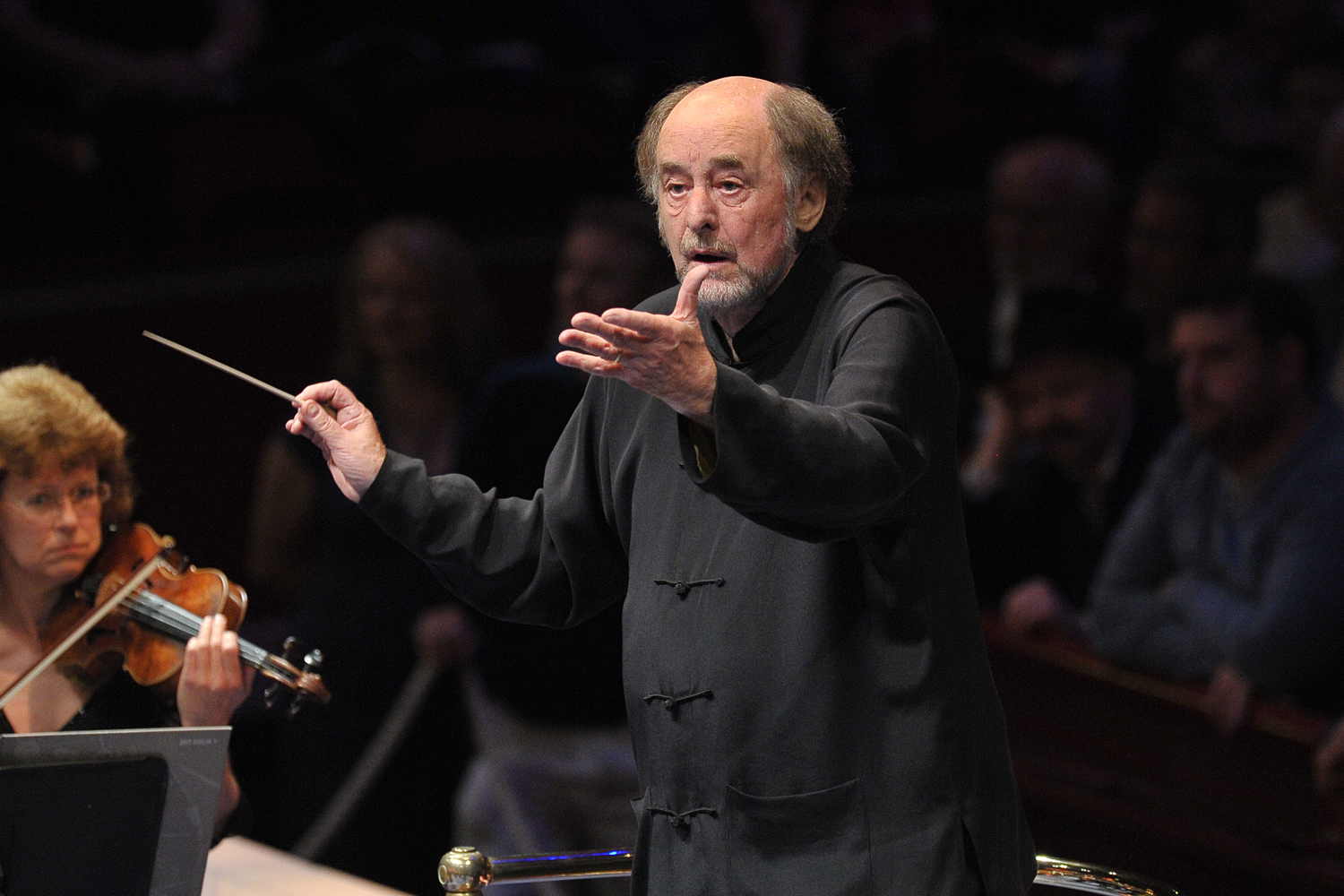Sir Roger Norrington, British conductor and musical iconoclast, dies at 91
Champion of period authenticity, he transformed the way we hear classical music
Sir Roger Norrington, the English conductor who radically reshaped classical performance practice and challenged generations of musical orthodoxy, has died at the age of 91. A fiery advocate for historically informed performance, Norrington championed the use of period instruments and stirred fierce debate with his campaigns against vibrato, which he once famously described as a "modern drug."
His interpretations—especially of Beethoven, Berlioz, Wagner, and Mahler—were both revelatory and divisive. Where some heard crisp historical clarity, others heard interpretations that bordered on heresy. But no matter the response, Norrington’s influence on the classical world was undeniable.
A conductor with a mission
Born in Oxford on March 16, 1934, Roger Arthur Carver Norrington grew up in a family steeped in music and academia. His father, Sir Arthur Norrington, served as vice-chancellor of Oxford University and created the Norrington Table, a ranking of Oxford colleges. Roger's musical upbringing began early—his mother was an accomplished pianist, and he sang and played violin as a child.
After wartime evacuation to Canada and a return to school in Oxford, Norrington studied English at Clare College, Cambridge, then worked in publishing while singing and conducting on the side. His discovery of the relatively obscure 17th-century composer Heinrich Schütz sparked a lifelong passion for early music and authenticity. That enthusiasm led to the founding of the Schütz Choir in 1962, an ensemble that caught the attention of the Royal College of Music, where Norrington would study under Sir Adrian Boult.
The battle against vibrato
Norrington's legacy is inseparable from his uncompromising views on how music should sound. He sought to return composers' works to their original sonic landscapes—not only by using instruments of the period, but by stripping away layers of Romantic interpretation that had accumulated over centuries. His insistence on original metronome markings and his near-complete rejection of string vibrato made him a polarising figure.
His landmark recordings of Beethoven’s symphonies with the London Classical Players in the 1980s, played on period instruments and recorded with historically appropriate tempi and technique, jolted the classical world. Traditionalists were aghast, but others hailed them as a thrilling rediscovery.
“If people don't like it, that's fine,” Norrington once said. “But don’t pretend it’s not what the composer asked for.”
A career of firsts
Norrington was the first to conduct period-instrument performances of many Romantic masterworks, including Haydn’s Creation, Mozart’s The Magic Flute, and Berlioz’s Symphonie fantastique. He didn't confine himself to early music either—he worked with major modern orchestras across Europe and North America, always pushing for clarity, transparency, and historical insight, even with modern instruments.
A typical Norrington concert often included his trademark informal commentary—part lecture, part stand-up routine. His "Experiences" series at London’s South Bank were marathon weekends of music and education dedicated to a single composer.
From 1969 to 1984, he led Kent Opera through over 400 performances. He later founded the London Classical Players, who carried his historically informed vision into the orchestral mainstream. He worked with the Orchestra of the Age of Enlightenment, Camerata Salzburg, and Stuttgart Radio Symphony Orchestra, which he famously brought to London for its final performance at the BBC Proms in 2016.
Norrington also held posts with the Zurich Chamber Orchestra and appeared at major houses including Covent Garden, La Scala, and La Fenice.
A polarising figure
While his Beethoven was already controversial, Norrington’s interpretations of Wagner and Mahler proved even more divisive. His vibrato-free recording of Mahler’s Second Symphony drew howls from traditionalists, but also inspired younger generations to question accepted norms of orchestral sound.
Beneath the casual charm and cheerful wit, Norrington could be unyielding. Critics sometimes described his musical direction as dogmatic. But he remained undeterred, relishing the role of provocateur armed with historical evidence.
Later years and legacy
Norrington continued conducting into his later years, even after surviving skin cancer and brain surgery in the 1990s. He was appointed OBE in 1980, promoted to CBE in 1990, and knighted in 1997. His honours reflect a lifetime of musical daring and disruptive innovation.
He was married twice—first to Susan McLean May, with whom he had two children, and later to dancer and choreographer Kay Lawrence, with whom he founded the Early Opera Project and had a son.
Sir Roger Norrington died on July 18, 2025.
Though often a lightning rod for controversy, Norrington permanently altered the way musicians and audiences think about classical music. Whether you loved or loathed his approach, one thing is certain: after Sir Roger, music was never quite the same.
